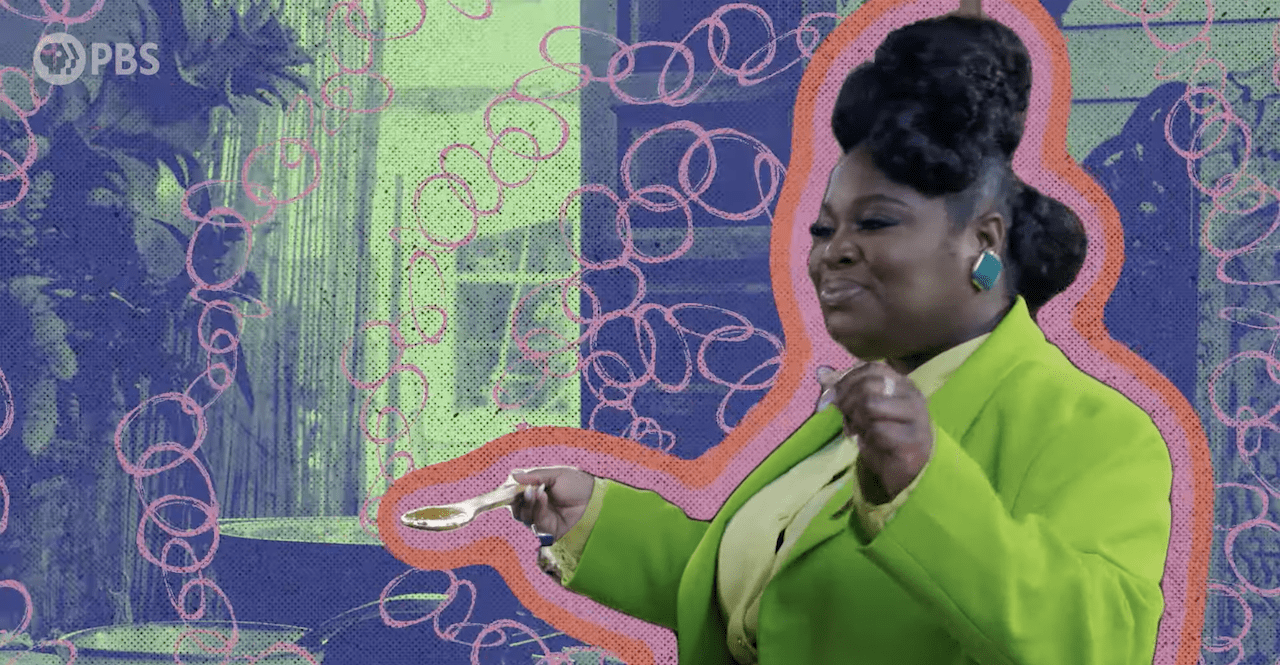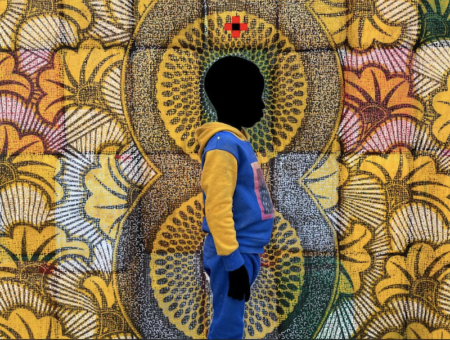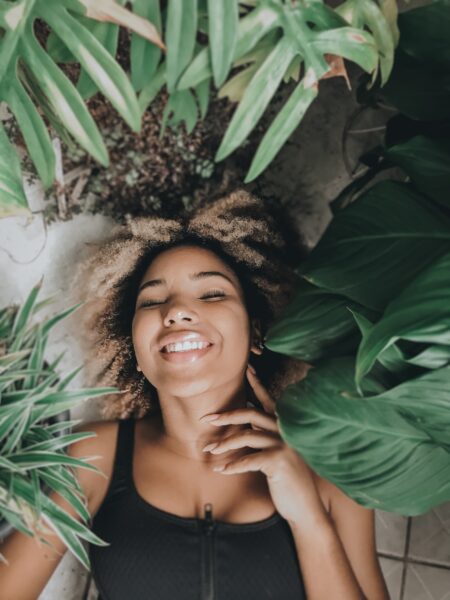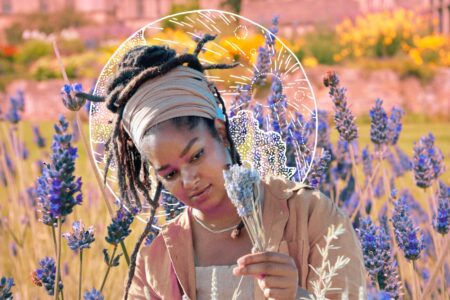Tarionna “Tank” Ball joins PBS Digital Studios for Ritual, a series where Ball meets with cultural experts about “how rituals across the south reveal complexities of the past and new possibilities for the future.” Tank Ball is a native of New Orleans and the endeared lead singer of Tank and the Bangas, whose songs like “DM Pretty” and “Black Folk” resonated with the ears and hearts of listeners who connect with her vocal reverence for cultural and self-love. Here’s a recap of episodes released so far.
Uncovering the Power of Hoodoo: An Ancestral Journey
Ritual debuted in February 2023, and episodes are currently being released on YouTube. The first episode is on Hoodoo: Uncovering the Power of Hoodoo: An Ancestral Journey. In the 12-minute episode, Ball helps viewers understand the origin of Hoodoo and how it is practiced today. Dr. Kameelah Martin, Professor of African American Studies at College of Charleston in South Charleston, sat with Ball to explain the concept of ancestor worship which is at the root of hoodoo practice. She describes hoodoo as a system of “healing and harming” that helped ancestors survive the tragedy of slavery, which eventually evolved with the customs and practices of the Black church.
Exploring the healing and conjure aspect of Hoodoo, Ball then sits with Daa’iyah Salaam, a Traditional Conjurer Woman & Healer, who explains that to be a conjurer is to be someone who knows how to “make something out of nothing.” Our cultural customs of working with the contents of our home, from the pantry to the garden, is one example of how we find solutions to heal what ails us. Salaam also explains the basics of how to practice ancestor worship and pay respects for their journey that paved the road for yours.
Inside Black New Orleans’ Most Sacred Ritual
Black Masking Indians of New Orleans are the subject of the second episode of Ritual, where Ball explores the custom and culture of this world-renowned tradition homegrown from the roots of Louisiana since the 1800s. Ausettua AmorAmenKum, a Black Masking Indian, talks with Ball to explain the definition of Black Masking Indians versus how they are typically known: Mardis Gras Indians. AmorAmenKum continues to answer many questions from how the tradition is connected to diaspora, the difference between Super Sunday and Mardi Gras, how the community participates in the tradition, and what it means for the Indians to battle.
And in spite of all the atrocities that black people have faced in New Orleans, we still manifest this beautiful culture. Its a culture of resistance, its a culture of defiance, its a culture of creativity.
-Ausettua AmorAmenKum
Closing out the episode, Tinice Williams, who is a Baby Doll of New Orleans, and Chief Monk Boudreaux introduce their family lineage of Black Masking Indians and how they are actively continuing the ritual of being Black Masking Indians.
Learn More About Black Masking Indians: Watch WORLD Channel – Big Chief, Black Hawk by American ReFramed
The History of the South’s Forbidden Black Burials
In Baton Rouge, Louisiana, Ball learns from Jeremy Thomas, a Luthern Cemetery Caretaker, who is carrying on the legacy of his family. His father worked as the caretaker of the location before him, and his great-great-grandmother joined the Benevolent Society, whose mission was to “take care of the sick and bury the dead.” Benevolent Societies were a part of the history of fraternal organizations that helped provide dignity and assistance for families who sought burial services where racist segregation laws created barriers.
Joy Banner of The Descendants Project explains the value of proper burial practices and its connection to the Black experience. She emphasizes how new generations taking on the act of maintaining the grounds and records of our ancestors is of vital importance due to the history of how our enslaved ancestors were treated historically. Banner emotionally describes the impact of the common inhumane practice of burying our enslaved ancestors and how ancestors innovated around acknowledging unmarked graves.
The last segment of the episode naturally connects the role of the church in our burial practices. Reverend Lionel Davis of Afton Villa Baptist Church (a church originally formed by enslaved ancestors of the Cloverhill Plantation) opens the doors to Ball and Thomas for a brief conversation and a performance of a traditional church hymn.
The Revolutionary Roots of Haitian Soup Joumou and more episodes are being released on YouTube with additional microcontent to understand key notes from each episode. Subscribe to PBS Voices on YouTube to watch more or view on PBS.





